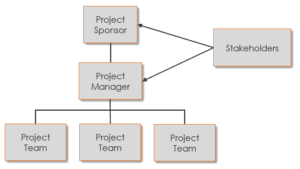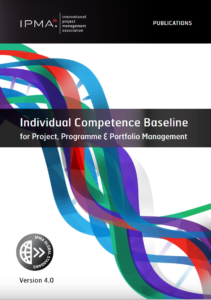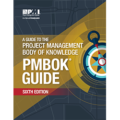
In project management, the project team is the component of the project organizational chart that carries out the project’s technical work.
The project team reports to the project manager.
For small projects, the project team and the project manager can be the same person. But this does not mean the distinctly separate roles are not present.
The main project roles are:
- The project team carries out the day to day technical work of the project. They produce the project’s deliverables. They are responsible for carrying out the tasks that are assigned to them and report to the project manager.
- The project sponsor is one level above the project manager. They usually manage the project funding and accept its deliverables.
- The project manager is the highest level of authority and accountability within the project, who produces the project management plan and ensures the deliverables are produced according to the plan. They ensure the project completes on time, on budget, and that all stakeholders are satisfied. In short, they are accountable for project success.
- The project stakeholders have varying interests in the project and exert their influence as necessary to meet their personal or organizational goals.
 In the agile framework, a slight change is made. Customers and end users (a type of stakeholder) interact directly with the project team, who are empowered to make decisions with budget and schedule implications based on stakeholder’s needs. This allows product changes to be implemented rapidly without layers of management approval, hence the term agile.
In the agile framework, a slight change is made. Customers and end users (a type of stakeholder) interact directly with the project team, who are empowered to make decisions with budget and schedule implications based on stakeholder’s needs. This allows product changes to be implemented rapidly without layers of management approval, hence the term agile.
Project Teams in the Project Management Body of Knowledge
In the 7th edition of the Project Management Body of Knowledge (PMBOK Guide), the second of eight project performance domains is called Team. This performance domain covers activities and functions associated with the people who are responsible for producing the project’s deliverables that in turn realize business outcomes. It contains the following highlights
- Leadership qualities are essential for the project manager, whether the project utilizes central project management or servant leadership
- Project team development involves providing areas for growth, since project team members want to grow in their knowledge, skills, or experience.
- Project team culture should be actively developed with the values of transparency, integrity, and respect for positive discourse.
- High performance project team have a high degree of collaboration, trust, and open communication.
- Team motivation is a daily requirement of the project manager
- Conflict management practices are practiced by the project manager.
Project Teams in PRINCE2
 Since PRINCE2 is more of a project organizational system than a general project management knowledge base like the PMBOK Guide, the project organizational structure is very well defined.
Since PRINCE2 is more of a project organizational system than a general project management knowledge base like the PMBOK Guide, the project organizational structure is very well defined.
The second of seven PRINCE2 themes, called Organization, defines the structure of a PRINCE2 project. Some of the roles may be combined into one person but each separate role is still present.
The project team is separated into two parts:
- The Team Manager is responsible for ensuring production of the products allocated by the project manager. They represent the day to day task prioritization for the project team.
- The Project Team carries out the day to day project technical work.
In addition, several other roles interact with these two:
- The Project Manager delegates responsibility for the managing product delivery process to the team managers. Hence, the project manager role is more of an oversight one than one of direct day to day involvement in the production of deliverables.
- Project Support provides administrative support or advice and guidance on the use of project management tools to both the project manager and project team. Often, an organizational project office is available which fulfills this role.
Project Teams in the IPMA Individual Competence Baseline
 In the Individual Competence Baseline produced by the International Project Management Association (IPMA), the primary section governing project teams is People 6: Teamwork. In this competence element, the standard for project managers is defined based on their ability to select the right team members, promote a team orientation and effectively manage the project team.
In the Individual Competence Baseline produced by the International Project Management Association (IPMA), the primary section governing project teams is People 6: Teamwork. In this competence element, the standard for project managers is defined based on their ability to select the right team members, promote a team orientation and effectively manage the project team.
There are five key competence indicators:
- Select and build the team
- Promote cooperation and networking between team members
- Support, facilitate, and review the development of the team and its members
- Empower teams by delegating tasks and responsibilities
- Recognize errors to facilitate learning from mistakes











Leave a Reply